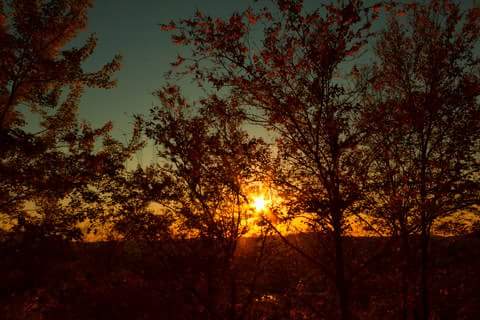
- Details
- By Jenna Kunze
NEW YORK—In early June, the New York state legislature passed legislation that, if signed by Gov. Kathy Hochul, would protect unmarked burial sites from excavation.
“It’s not a crime in New York to desecrate a gravesite. This law makes that a crime,” Unkechaug Nation Chief Harry Wallace told Native News Online. The chief, who lives on the Poospatuck Reservation in Mastic, on Long Island about 65 miles east of New York CIty, is one of the leaders in a decades-long effort to pass legislation to protect unmarked graves. “It’s not a crime to steal artifacts from a gravesite. This law makes that a crime. It’s not a crime to bulldoze a gravesite without consent. This law makes that a crime.”
The Unmarked Burial Site Protection Act would require that construction be stopped on private property if human remains are encountered; create a Native American burial-site review committee; and allow tribes and individuals to seek injunctions against violators.
It was introduced last year by state Sen. John Brooks (D-Nassau County) and Assemblymember Steven Englebright (D-Suffolk). Similar measures had been introduced in every legislative session since 2009. The Inter-Tribal Historic Preservation Task Force, primarily composed of roughly half a dozen Algonquian-speaking tribes from Long Island’s east end, campaigned for it.
Currently, New York, New Jersey, Wyoming, and Ohio are the only four states that don’t have laws to protect unmarked graves. In other states, the discovery of an unmarked gravesite sets off a chain of mandates, such as notifying a local coroner, who would then call the state archeologist if the remains were more than 50 years old; trying to establish a link to a present-day Native American tribe and entrusting the remains to that affiliated group; and criminal penalties for those who don’t comply.
Over the last two decades, there have been several instances where an unmarked burial site legislation would have protected Indigenous human remains from disturbance on Long Island. In 2003, a developer on Shelter Island, off the coast of Long Island, unearthed a mass Native burial site on his property, and then built a horse barn over it.
In just the last two years, the Inter-Tribal Historic Preservation Task Force has reclaimed more than 150 human remains that had been unearthed by archeologists and museums in Suffolk County, Long Island’s easternmost county, in the late 1800s and early 1900s.
“This law basically brings New York into the 21st century,” Wallace said. “It’s not a revolutionary idea.”
Hochul has until December 31st to call the bill to be signed. If she doesn't the bill will be considered vetoed.
This story has been updated to give a time line for Hochul's signing or veto of the bill and to correct the number of states that do not protect unmarked graves.
More Stories Like This
NCAI Passes Two Emergency Resolutions on Immigration Enforcement ActivitiesChickasaw Lighthorse Police Officer named Indian Country Law Enforcement Officer of the Year
Indian Gaming Association Rallies Broad Coalition Against Sports Event Contracts It Calls Illegal Threat to Tribal Sovereignty
Navajo Resources and Development Committee Issues Notice on Livestock Inspection Requirements
American Prairie, Tribal Coalition Files Protest Over Rescinded Grazing Rights
Help us defend tribal sovereignty.
At Native News Online, our mission is rooted in telling the stories that strengthen sovereignty and uplift Indigenous voices — not just at year’s end, but every single day.
Because of your generosity last year, we were able to keep our reporters on the ground in tribal communities, at national gatherings and in the halls of Congress — covering the issues that matter most to Indian Country: sovereignty, culture, education, health and economic opportunity.
That support sustained us through a tough year in 2025. Now, as we look to the year ahead, we need your help right now to ensure warrior journalism remains strong — reporting that defends tribal sovereignty, amplifies Native truth, and holds power accountable.
 The stakes couldn't be higher. Your support keeps Native voices heard, Native stories told and Native sovereignty defended.
The stakes couldn't be higher. Your support keeps Native voices heard, Native stories told and Native sovereignty defended.
Stand with Warrior Journalism today.
Levi Rickert (Potawatomi), Editor & Publisher


